Ethiopia's hidden war in Tigray threatens return to ethnic violence and instability
A communications blackout has made it difficult to obtain or verify information.
LONDON -- Meaza Gidey hasn't spoken to or heard from her family in weeks.
The 26-year-old goes to graduate school in the United States, but she was born and raised in Tigray, the northernmost region of Ethiopia, where a deadly conflict broke out last month between federal troops and rebellious regional forces. While a communications blackout, though now partially restored, has made it difficult for journalists and humanitarian actors to obtain or verify information, it's also prevented people from getting in touch with loved ones.
"I don't know what's happening to them. They might be dead or they might be alive," Gidey recently told ABC News in a remote interview. "But to be quite honest, I'm not just worried only about my family at this point. I don't think any Tigrayan is only worried about their immediate family members. We're worried about our collective existence."
On Nov. 4, Ethiopian Prime Minister Abiy Ahmed announced a military offensive against the Tigray People's Liberation Front, a powerful ethnically based political party that dominated the East African nation's federal government for almost 30 years, until Abiy came to power in 2018. The prime minister alleged that forces loyal to TPLF had attacked the headquarters of the Ethiopian military's Northern Command in Tigray's regional capital, Mekelle. Abiy's cabinet declared a six-month state of emergency in Tigray and ordered airstrikes that knocked out the region's electricity grid as well as telephone and internet services.
"This has been brewing for decades, if not more than three decades," Mesfin Negash, a formerly exiled Ethiopian journalist turned Sweden-based human rights analyst, recently told ABC News in a remote interview. "But for keen observers, what's happening in Ethiopia now is not surprising."
"As an Ethiopian myself," he added, "it worries me because the distrust between ethnic elites is very high."
Rise and fall of the TPLF
After Emperor Haile Selassie was overthrown by members of the Ethiopian army in 1974, the Soviet-backed military junta that took power -- known as the Derg -- imposed a brutally repressive regime. Meanwhile, a grassroots resistance emerged in the Tigray region that would ultimately become the most powerful armed movement in Ethiopia. The TPLF, at its inception in 1975, "was grounded in an ethno-nationalist consciousness generated by the cumulative grievances of Tigrayans against successive central governments of Ethiopia," according to a 2004 article written by one of the leading founders, Aregawi Berhe.
The TPLF formed a multi-ethnic coalition with other liberation groups, called the Ethiopian People's Revolutionary Democratic Front, and led a years-long insurgency to topple the Derg, securing victory in 1991. The TPLF's leader, Meles Zenawi, became president of Ethiopia's transitional government and constructed a federal system explicitly based on ethnicity that still exists today. The 1995 constitution devolved political power to the country's ethnically defined regional states, stipulating that each had the "unconditional right to self-determination, including the right to secession."
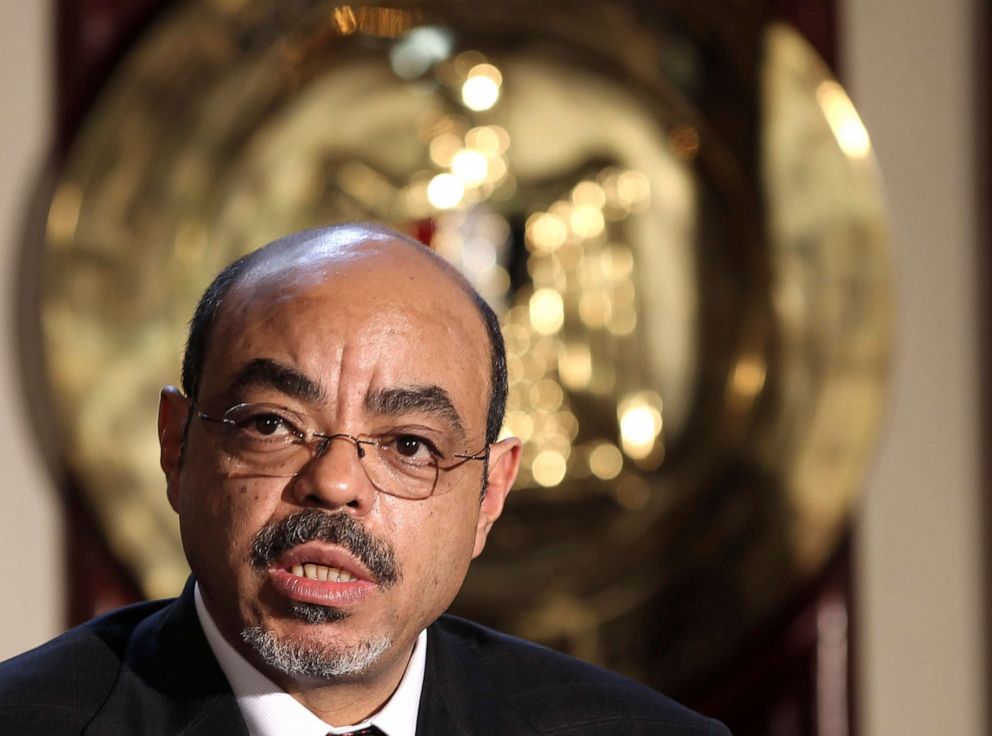
Zenawi served as prime minister until his death in 2012. His handpicked successor, Halemariam Desalegn, resigned unexpectedly in 2018 amid widespread anti-government protests that broke out in the Oromio and Amhara regions. The ruling EPRDF coalition chose Abiy, a former army intelligence officer from Oromia, to be the new party leader and hence prime minister, despite opposition from its dominant member party, the TPLF.
Abiy was appointed with a mandate to oversee Ethiopia's transition to democracy and rebalance power that had long been distributed on ethnic lines. He spent his first few months in office freeing thousands of the country's political prisoners, lifting media censorship and appointing female ministers to a record 50% of his cabinet. He also spearheaded a peace agreement to end 20 years of frozen conflict between his nation and neighboring Eritrea, which led to him being awarded the 2019 Nobel Peace Prize.
But Abiy also made a number of controversial decisions that angered the TPLF as the party lost its grip on power. Last year, he dissolved the EPRDF and formed a pan-Ethiopian party in a move to distance the country's politics from ethno-federalism. All former member parties of the EPRDF merged to join Abiy's new Prosperity Party, except the TPLF.
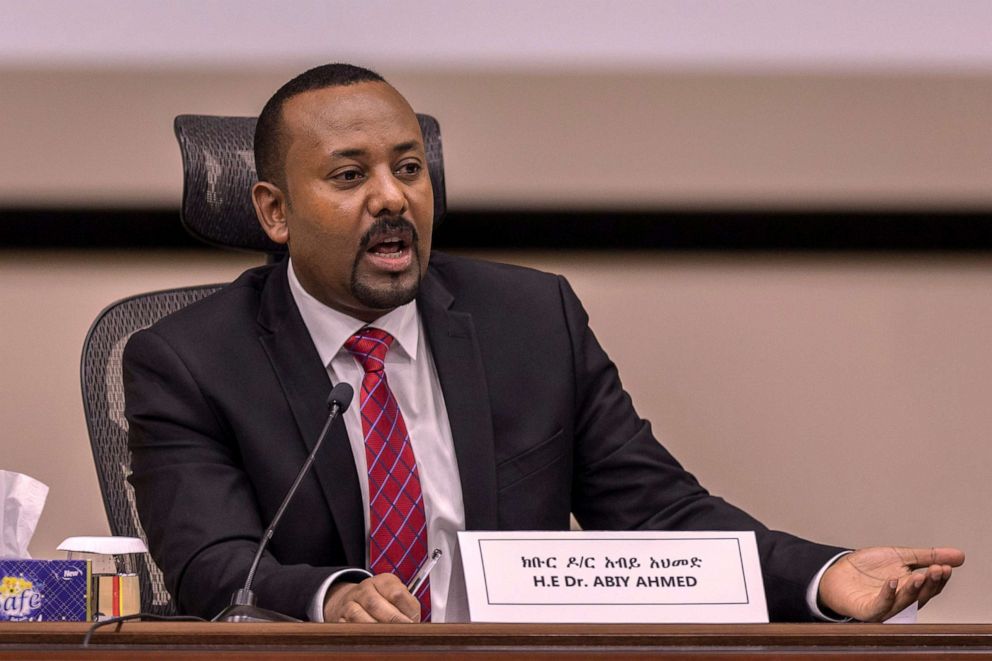
Then in late March, Ethiopia's electoral commission announced it would postpone general elections scheduled for August due to the coronavirus pandemic. Lawmakers approved the decision in June, voting to extend the mandate of the current government, which was set to expire in October. Tensions apparently came to head when the Tigray region held parliamentary elections in September that Abiy deemed illegal. The TPLF argued that Abiy no longer had a mandate and thus his government was illegitimate.
Opponents of Abiy have accused him of taking an authoritarian turn, while others have suggested the current conflict in Tigray is fundamentally underpinned by the dissatisfaction of the TPLF, who themselves had governed Ethiopia with an iron fist.
"The prime minister himself made some mistakes in how he handled the reform process," said Negash, who is now the senior program officer of the Africa Department at Civil Rights Defenders, a Stockholm-based international human rights organization.
"The relationship was largely of undermining and outmaneuvering the other party from the get-go," he continued. "On the other hand, we have seen from the TPLF side that they couldn't accept that they lost and it became very personal."
'Nothing but the clothes on their backs'
Tens of thousands of people have fled the ongoing conflict in Tigray, crossing Ethiopia's border into Sudan and arriving at refugee camps. Abu Obeida El Siddig Mohamed, chief field officer for the United Nations International Children's Emergency Fund in Kassala, eastern Sudan, said the Tigrayan refugees he's screened -- many women and children -- are "exhausted," "traumatized" and "in dire need of assistance."
"Looking at their faces, you can see that it's not easy," Mohamed recently told ABC News in a remote interview. "I have actually seen a few of them injured."
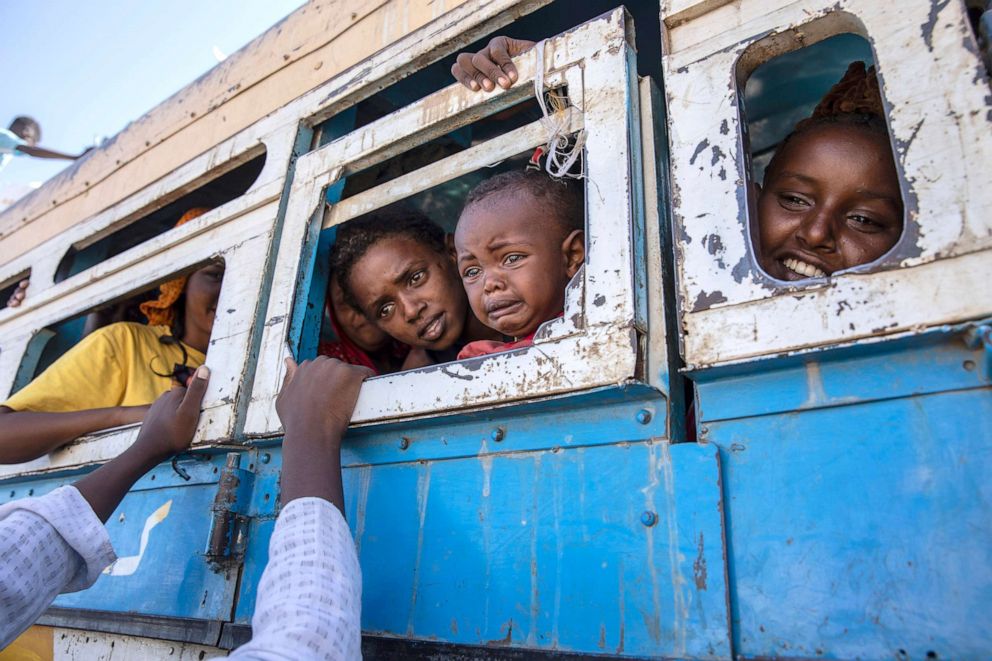
They were students, farmers, teachers and doctors who were unexpectedly forced to flee their homes, becoming refugees overnight. Many were separated from their families, including at least 121 unaccompanied children, according to Dana Hughes, a spokesperson for United Nations High Commissioner for Refugees who was at the Sudan-Ethiopia border interviewing newly arrived refugees.
"It's not hyperbole to say -- and I saw it myself -- that people literally fled with nothing but the clothes on their backs," Hughes recently told ABC News in a remote interview. "They were living ordinary lives."
There's also growing concern about the fate of some 100,000 Eritrean refugees living in camps within the Tigray region who will have now run out of food and supplies.
"With refugees being in that area, we are worried that they have been caught in the conflict," Hughes said. "And we do know that without having access to cash, fuel, food, that supplies were very much running out if they hadn't run out already."
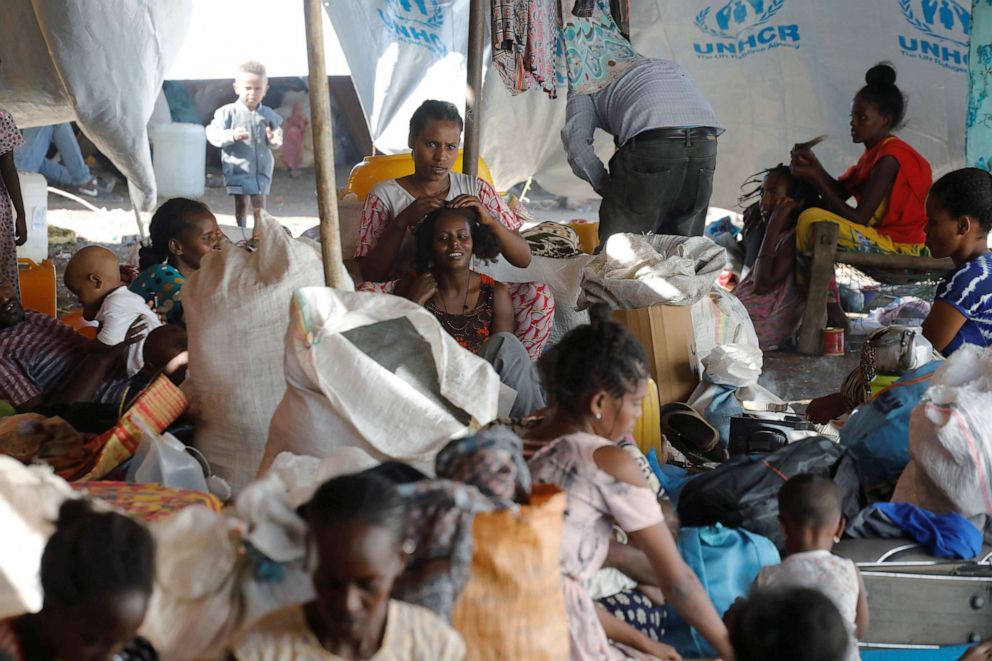
For weeks, Ethiopia's federal government has denied humanitarian groups and aid workers access to Tigray. But the United Nations signed an agreement on Wednesday with Abiy to allow "unimpeded, sustained and secure access for humanitarian personnel and services" to the parts of Tigray now under the federal government's control, according to Jens Laerke, a spokesperson for the United Nations Office for the Coordination of Humanitarian Affairs.
Laerke said the U.N. and its humanitarian partners in Ethiopia will engage with the federal government and all parties to the conflict to ensure humanitarian action "will be strictly based on needs and carried out in compliance with the globally agreed principles of humanity, impartiality, independence and neutrality."
"The U.N. and humanitarian partners will work to ensure that people impacted by the conflict are assisted without distinction of any kind other than the urgency of their needs," Laerke told ABC News in a statement Wednesday.
Abiy declares victory, TPLF vows to fight on
The development comes just days after federal forces took control of Tigray's capital, as Abiy declared victory in the war. But reports of clashes between federal troops and Tigrayan forces are still emerging, and the TPLF has vowed to continue fighting.
In a memo obtained by ABC News late Wednesday, a senior Tigrayan official said the region's special forces have been "on a defensive mode for the past month" but soon "will be taking offensives to leverage its land and people" and "will mount a full-scale operation of liberating the territories currently under occupation."
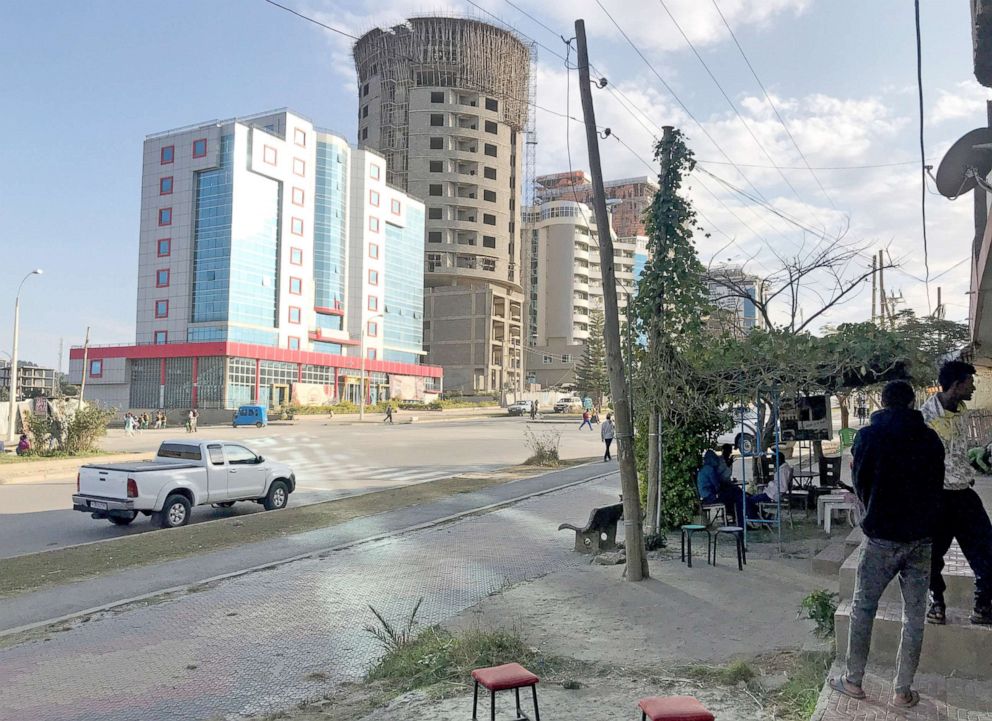
In the meantime, the region "has managed to undertake strategic retreat with all its military, government and party structures in tact," the official said. Tigrayan forces have captured "nearly 15,000 prisoners of war, most of whom have been handed over to the International Committee of the Red Cross," according to the memo.
The official said the federal government's capture of Tigrayan cities "has been proceeded by the evacuation of many of the residents fleeing indiscriminate heavy artillery attacks and horror committed by the invading army."
"The shutting down of telecommunication in the state by the Abiy regime has further emboldened the invading forces to commit war crimes of great proportion," the official said in the memo. "We believe the denial by the Abiy regime for access to a humanitarian corridor is a testament of the disregard the Abiy regime has shown for the protection of civilians throughout this conflict."
ABC News requested an interview with a spokesperson for Abiy but was unable to agree to demands that any interview be broadcast or published in its entirety.
'Tip of the iceberg'
Both sides have been accused of committing atrocities against civilians in Tigray, with reports of massacres and ethnically targeted killings. ABC News has been unable to independently verify the claims, and the exact number of civilian causalities from the conflict is unknown.
However, in one of the few independently verified reports from Tigray, the International Committee of the Red Cross found that food, medical supplies and even body bags for the dead were running "dangerously low" at one hospital in the regional capital, Mekelle, due to an "influx of injured."
And according to a report from human rights watchdog Amnesty International, it appears "scores, and likely hundreds, of people were stabbed or hacked to death" in the southwestern town of Mai-Kadra on the night of Nov. 9. The victims appeared to be daily wage workers who were not involved with the conflict. Amnesty International said it had not been able to independently confirm who was responsible but that several witnesses blamed fighters loyal to TPLF, apparently after they had suffered a defeat by federal troops.
The Ethiopian Human Rights Commission, a state-appointed but independent body, later dispatched its own team to the scene to investigate. Citing accounts from survivors and witnesses, the commission estimated that at least 600 civilians of non-Tigrayan ethnic origin were slaughtered in Mai-Kadra. The commission said the "massacre" was carried out by a Tigrayan youth group in collusion with local security forces.
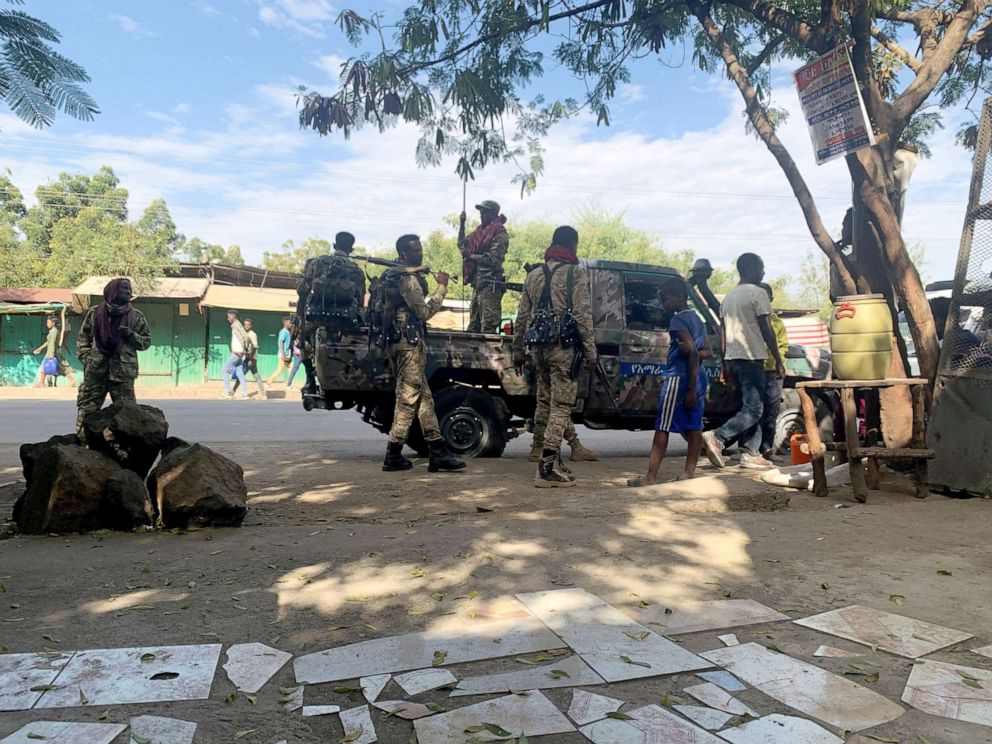
But there have been other reports that ethnic Tigrayans also have been targeted for attacks in the war-torn region, according to Fisseha Tekle, a researcher for Amnesty International in Ethiopia, who called the situation "extremely concerning."
"What we have managed to document in Mai-Kadra town can be foretelling of the situation in other places," Tekle recently told ABC News in a remote interview. "And this conflict can be a fertile ground for ethnic violence."
Tekle said there are fears of potential genocide, "but it needs further investigation," adding, "what Amnesty knows about the situation is just the tip of the iceberg."
Ravina Shamdasani, a spokesperson for the Office of the United Nations High Commissioner for Human Rights, said the accounts of violence and civilian casualties in Tigray are incredibly difficult to corroborate but nonetheless alarming.
"We're receiving very worrying reports of mass killings," Shamdasani recently told ABC News in a remote interview. "We're receiving reports of people in very dire humanitarian situations, but we're not able to verify them. Now, we do have 43,000 who have crossed the border over into Sudan. So we are conducting interviews there to try to understand what exactly it is they are fleeing, and what we're hearing is that there have been indiscriminate attacks from both sides."
"Again, we're not able to really verify these reports," she added, "but we are hearing people fleeing fighting, people fleeing shelling, people complaining of racial profiling as well."
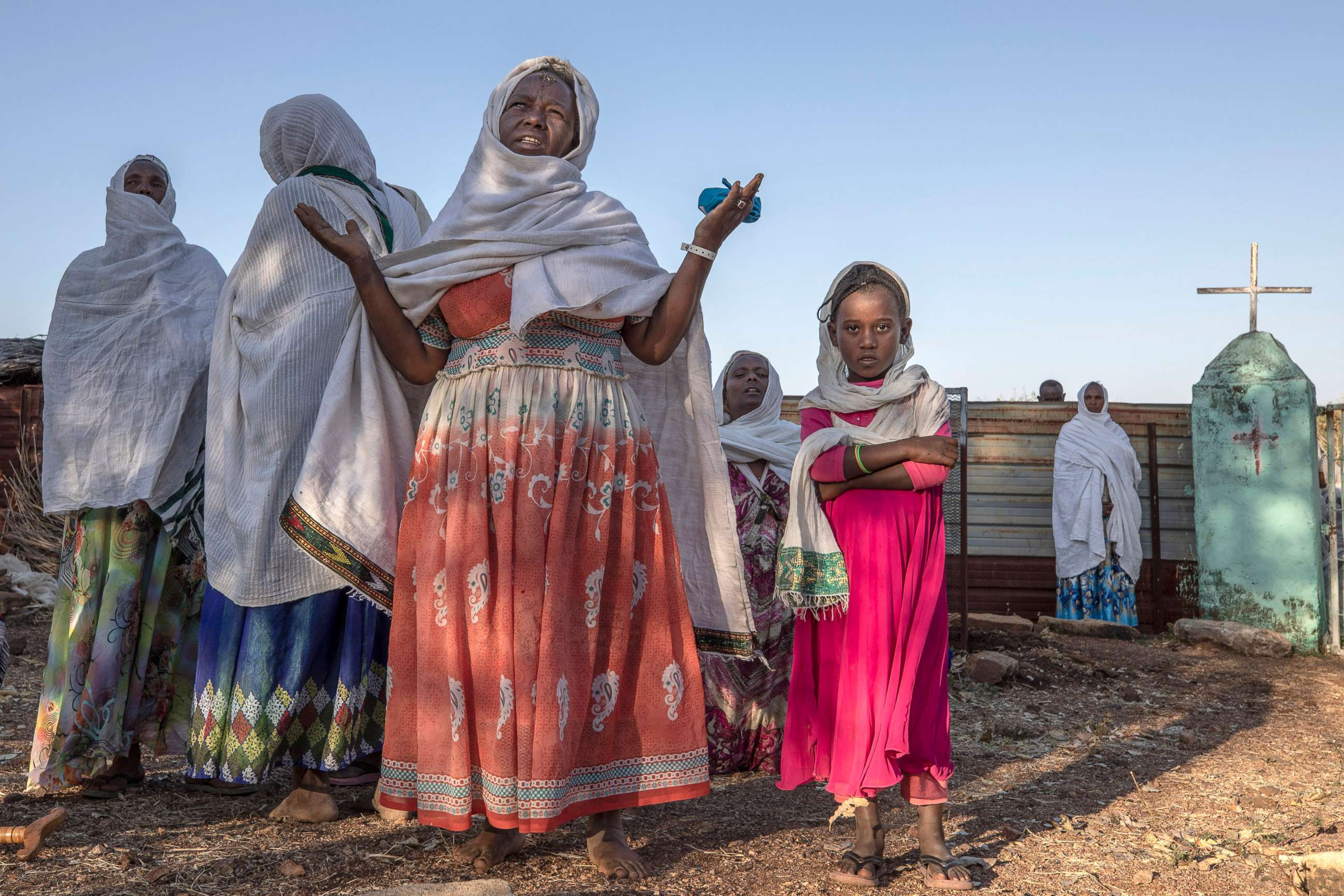
The communications blackout makes accountability "very unlikely" and has caused misinformation to spread like wildfire, according to Negash.
"I think for the government, the communication blackout is one strategy of winning the war, by denying the other party the ability to communicate with the external world, and, for that matter, probably even with the population that is in the region," Negash told ABC News, adding that it's "very harmful not only to those in the region but for their families in other parts of Ethiopia and outside."
"There is a high risk of losing evidences to bring perpetrators to account," he said.
As of Wednesday, internet and telephone services were partially restored in six towns of Tigray, including Mai-Kadra, and fully restored in one town, Alamata, according to Ethiopia's state-owned telecommunications provider. All seven towns were overtaken by federal forces.
"Currently, we are able to resume telecom service using alternative power solutions and after conducting necessary maintenance and rehabilitation works on damaged telecom infrastructures," Ethio Telecom said in a statement to customers Wednesday. "We would like also to inform you that we are working to restore telecom services in all areas of the region within short period of time."
The trickle of information about alleged atrocities will have an impact on how Abiy and his government move forward, according to Bronwyn Bruton, director of programs and studies of the Atlantic Council's Africa Center, an international affairs think tank in Washington, D.C.
"The big question is whether the people of Ethiopia will emerge from this conflict more or less united, and a lot will depend on whether the government is found to have committed atrocities against the Tigrayan people," Bruton recently told ABC News in a remote interview. "Any perception that ordinary Tigrayans have been targeted on the basis of ethnicity would make a grassroots insurgency in Tigray more likely, and it will inform opinion across the country about the nature of Abiy's government itself -- whether this battle was part of a necessary struggle to create a more effective democracy, or preparation for an authoritarian turn."
'There's a lot at stake'
Despite decades of authoritarian leadership, Ethiopia has long been seen as the biggest driver of peace and stability in the Horn of Africa, a region plagued by armed conflict, drought and terrorism. The outcome of what's happening in Tigray will be "a critical factor" in deciding the future of Ethiopia and, by extension, the region, according to Negash.
"I can link the risk of this conflict [in Tigray] to the American experience of 9/11," he told ABC News. "If things deteriorate and go out of control, this region can create a safe haven for future terrorists."
Since a devastating famine in the 1980s, which was estimated to have claimed more than 1 million lives, Ethiopia has come a long way, and the situation in Tigray "could set the country back decades," according to Shamdasani.
"There's a lot at stake," she said. "We fear that such a conflict could be a huge setback."
'The worst is yet to come'
Blen Mulu lives in Ethiopia's capital, Addis Ababa, where she works for an insurance company. Her father is ethnic Amhara while her mother is ethnic Tigrayan. Although she hasn't been able to get in touch with her relatives in Tigray since the conflict began last month, Mulu said she's not worried because her family lives in a town now under the control of the federal government.
"They are free from TPLF so they will be fine," Mulu recently told ABC News in a remote interview. "TPLF is definitely against the civilians."
The 26-year-old called the TPLF "evil" and "corrupt," accusing the party of coordinating the slaughter of ethnic Amharas in recent years. She also blamed the TPLF for starting the current conflict and putting civilian lives at risk.
"What they are doing is mostly risky for Tigrayans because they start the war when they are in Tigray," she said. "They are not in forest, they are not in dessert, they are in the middle of civilians."
"I'm not saying the federal government is innocent," she added, "but mainly, the main responsibility is TPLF."
Part Tigrayan herself, Mulu said the TPLF and its actions can "never ever" be representative of the Tigray region and its people, that "TPLF doesn't mean Tigrayan, and Tigrayan doesn't mean TPLF."
"If TPLF does not surrender," she thought aloud, "the worst is yet to come."
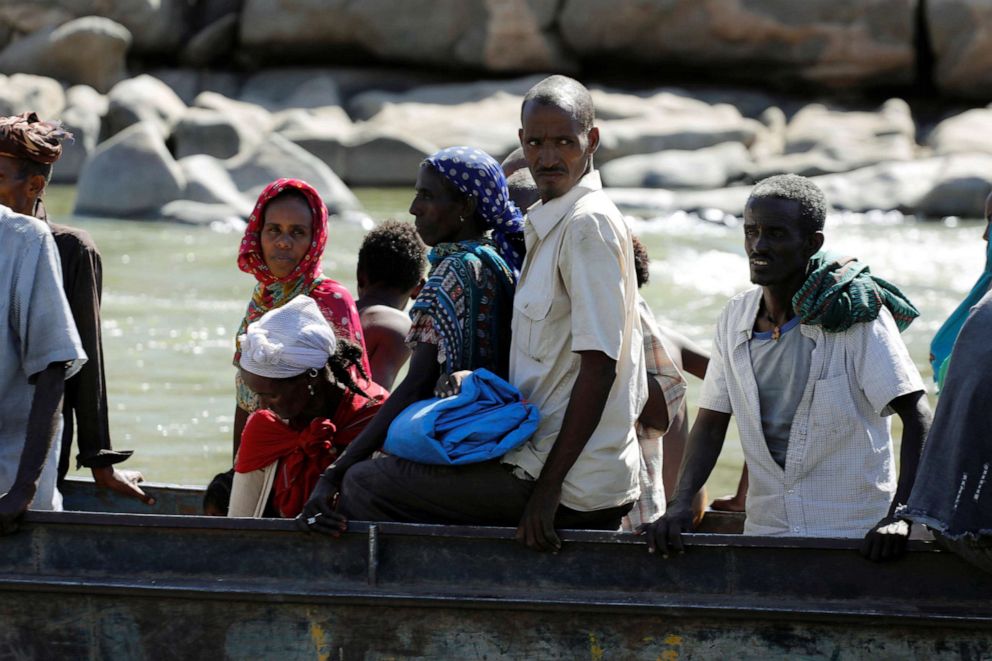
In Gidey's eyes, a TPLF defeat could mean death for any Tigrayan civilian who at one point supported the party.
"I am an activist and we have some activists on the ground who try to feed us with some information from time to time," Gidey told ABC News. "But the the one thing that we're hearing predominantly is the cities that are controlled by forces loyal to Abiy Ahmed are going through horrific, horrific experiences. Mothers are being raped, properties and houses are being looted. The young generation, particularly those who are believed to have the capacity to mobilize the youths, are being shot at."
Gidey said there are old photos in her family's home -- and in many homes -- in Tigray of TPLF soldiers and of Zenawi, the late Ethiopian prime minister and TPLF leader. She worries what federal forces will do to her loved ones if they find those photos.
"I am scared," she said, tears streaming down her face. "I am scared for everyone."
ABC News' Dragana Jovanovic contributed to this report.




